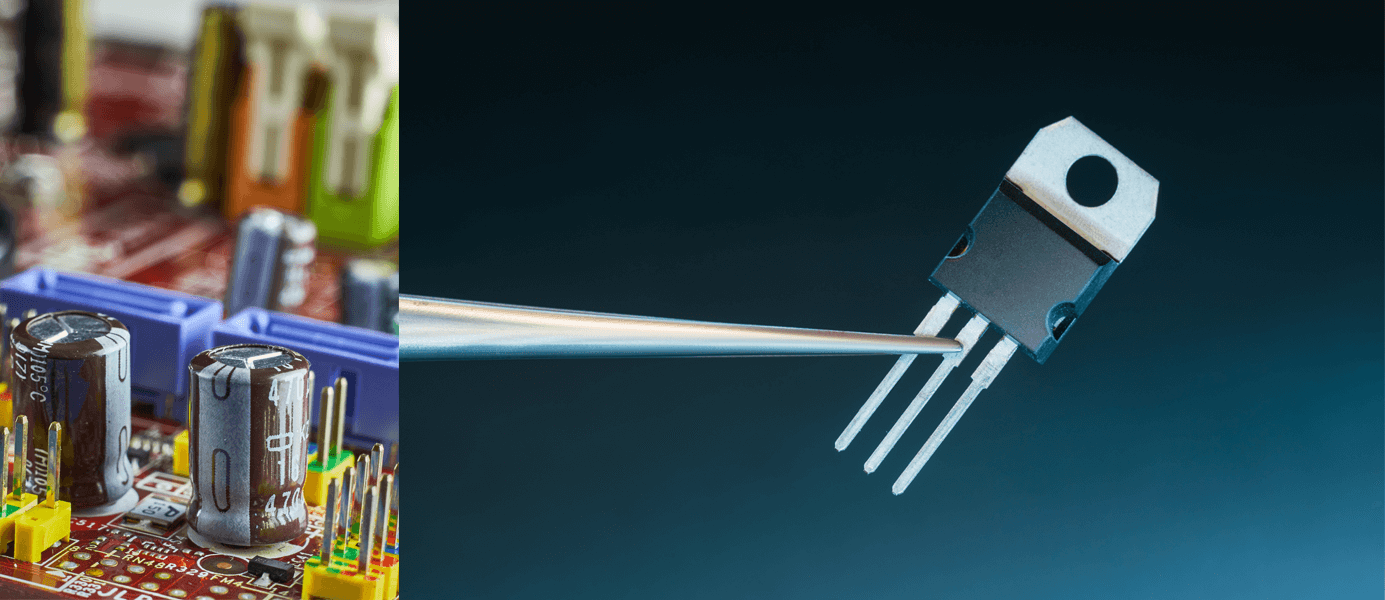M.TECH. POWER ELECTRONICS

A Masters in Power Electronics Program provides specialized skills and knowledge covering the key application of the solid-state devices along with the modern applications and current practices. Power is one of the amplifying growth and critical areas in the engineering industry and increased attention is given to power design in everything from smartphones to smart grids. Power electronics are responsible for converting and controlling electrical power in the system. More than 80% of the power generated finds its destination through power electronics devices. With the advent of renewable energy technologies, the usage of power electronics devices has gained an exponential range of applications in solar and wind energy technologies.
Apart from its dominant presence in domestic purpose viz. inverters, UPS, vacuum cleaners, air conditioners and computers, power electronics finds its extensive applications in the field of aerospace, automotive, consumer electronics, defence, energy and power, industrial, traction, utility systems, etc. In core electrical areas such as power systems, with increased emphasis on stability and reliability, power electronics are used extensively in smart grids, microgrids, FACTS and HVDC transmission. Power electronics control the majority of the components that control the Electric Vehicles starting from battery charging, main inverter, motor controls to braking system, power steering, etc.
The global power electronics market size was valued at $48.20 billion in 2024 and is projected to reach $84.70 billion by 2034, growing at a CAGR of 5.8%. India's power electronics market reached $2.7 billion in 2024 and is expected to grow to $4.3 billion by 2033. India is the third-largest growing electronics manufacturing hub after China and the USA, with leading Power electronics companies having established their R&D centers in India to cater to the local market, and many international companies have started the manufacturing industries in India that have created ample job opportunities in India.
The curriculum for the M.Tech Power Electronics program is designed with the involvement of Industry partners, national and international academic experts to ensure taught courses match the global job market demand and reflect the current state of industry research areas.
M.Tech is offered in partnership with Electromation Technologies which delivers world-class solutions for Electrical design and Industrial automation & Robotics. This collaboration facilitates knowledge sharing between both the organizations and improves students' knowledge and skills in the aforementioned areas.
The students of the program will have an opportunity to work as iScholars at the Center for Emerging Energy Technologies (CEET) which helps to gain hands-on experience and become industry-ready. The Centre offers mini-projects, internship programs and projects in collaboration with Industries. A student can also explore other interdisciplinary research centers@SRU
2 years (4 semesters)
Specialized Power Electronics application courses encompass Renewable Energy, Electric Vehicles, Power Systems, Automation, Smart Grids, and more.
Opportunity for students to develop practical skills for the analysis, design, and application of power conversion systems in key areas of industry.
Highly equipped with the latest state-of-the-art laboratories run by practicing researchers to enhance students' hands-on, programming, and simulation skills.
Industry and academic experts deliver seminars to ensure students are updated with cutting-edge technologies and current industry research areas.
The final year of this program is dedicated to major projects that can be undertaken in industry or as research projects under the guidance of industry experts and research faculty members.
Power Industry
Energy Sector
Domestic Appliances
Electric Vehicle Industry
Drives and Automation
Wind Energy Systems
Solar PV Systems
ABB
Siemens
GE Energy
Havells
Tata Motors
Medha Servo Drives
Suzlon
Huawei
Electronics Hardware Developer
System Engineer
Power Electronics Firmware Engineer
Power Electronics Engineer
Power Electronics Design Engineer
Electrical Pitch System Specialist
Solar PV Power Electronics Engineer
PEO 1: Establish a successful professional career in the field of power electronics, and allied industries.
PEO 2: Pursue higher education and engage in independent, lifelong learning in engineering.
PEO 3: Deliver sustainable engineering solutions to address societal challenges.
PO1: Ability to apply the knowledge of Science, Mathematics and Engineering Principles for developing critical thinking and problem-solving skills.
PO2: Ability to independently carry out research/investigation, development work to solve practical problems and to write / present a substantial technical report.
PO3: Ability to function as a member of a multidisciplinary team with sense of ethics, integrity, and social responsibility.
PO4: Utilize technical expertise, skills, and analytical capacities to design, develop, and evaluate power electronic converters and drives using contemporary tools and technologies.
PSO1: Address the challenges and create innovative solutions in the growing fields of smart grid, renewable energy interfaces, and electric vehicles, while simultaneously grappling with the social, ethical, economic, and environmental implications of such technologies.
PSO2: Address research gaps and propose solutions to socio-economic and environmental challenges.
Specialised Power Electronics application courses encompass Renewable energy, Electric vehicles, Power systems, Automations, Smart grid, etc.
Opportunity for students to develop practical skills for the analysis, design and application of power conversion systems in key areas of industry.
Highly equipped with the latest state-of-art laboratories run by practicing researchers to enhance students' hands-on, programming and simulation skills.
Industry & academic experts deliver seminar to ensure the students are updated with cutting-edge technologies and reflect the current state of industry research areas.
The final year of this program is dedicated to major projects that can be undertaken in industry or a research project under the guidance of Industry experts and Research Centre faculty members of the department.
Power
Energy
Domestic Appliances
Electric Vehicle
Drives
Wind Energy System
Solar PV System
ABB, Siemens
GE Energy
Havells
Tata Motors
Medha Servo Drive
Suzlon
Huawei
Electronics Hardware Developer
System Engineer
Power Electronics Firmware Engineer
Power Electronics Engineer
Power Electronics Design Engineer
Electrical Pitch System Specialist
Solar PV Power Electronics Engineer